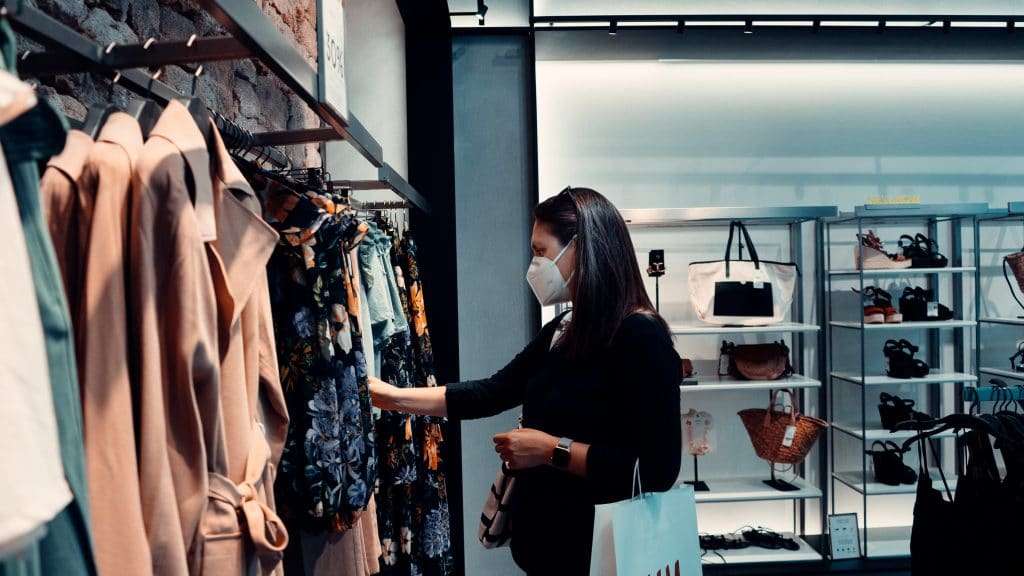A monumental shift is underway in the UK, according to a new report from Barclays. The report finds one in five retailers cut ties with suppliers that failed to meet sustainability and ethics standards.
Over the last 12 months, more than 20 percent of British retailers have canceled nearly $10 billion (£7 billion) worth of contracts with questionable suppliers, according to a new report from Barclays Corporate Banking, entitled Reshaping retail: how ethics and sustainability are changing retail’s ecosystem.
The report cites changing consumer shopping habits, which were influenced in large part by the climate crisis as well as the pandemic, and businesses increasing their focus on Environment, Sustainability, and Governance reporting. The report cited 51 percent of purchasing decision-makers across U.K. retail chains, as saying sustainability is more important now than it was just two years ago. Forty-nine percent said the same for ethical standards.
Shifting standards
On average, retailers have cancelled six contracts each in the last year at a loss of more than $414,000 (£306,000) per operation. The most common reasons cited include the use of unsustainable materials (39 percent), unfair working hours (37 percent), and lack of membership to trade bodies that monitor ethical and sustainable standards (32 percent).
Those cancelled contracts were counterbalanced with 28 percent of retailers joining trade organizations that monitor supplier performance across ethical and sustainability metrics.

“We are seeing a marked acceleration and shift among retailers towards prioritising sustainable and ethical standards in every part of their business operations. That is now starting to take its toll on retail suppliers with billions of pounds worth of contracts being cancelled every year,” Karen Johnson, Head of Retail and Wholesale, Barclays Corporate Banking, said in a statement accompanying the report.
“It’s being driven by increasing consumer demand and will rise even further as Gen Z enter the workplace and begin to earn their own money. Retailers must continue to monitor and improve their ethical and sustainability standards if they are to appeal strongly to younger demographics.”
A long-term strategy to improve ethical and sustainability credentials was cited as more important than overcoming short-term supply chain disruptions for the majority of the survey participants—79 percent. And the report shows retailers will have to make the shift soon as more than 60 percent of young shoppers say they will discontinue their support of retailers that don’t show strong sustainability and ethics commitments.
Purchasing power
According to Barclays, 52 percent of 2,000 consumers surveyed for the research said ethical and sustainability credentials play a significant role in purchasing decisions after quality and price.
The commitment appears strongest with younger shoppers, with more than 60 percent of 16 to 24-year-olds saying they would stop shopping at their favorite stores over ethical concerns. For the 25 to 34-year-old segment, it was 68 percent.
They’re willing to pay for it, too. On average, young consumers said they would pay 4.55 percent more for ethically-sound products and 4.36 percent more for sustainably-sourced products.

Those findings mirror a report published by diamond brand De Beers last year. It found consumers, particularly younger shoppers, were willing to pay more for sustainable and ethically-sourced diamonds and gemstones.
That report found 33 percent of consumers now value sustainability over price and design of diamonds, and 56 percent of consumers are willing to pay ten to 20 percent more for sustainable diamonds and jewelry. Thirty percent of Millennials, as well as 21 percent of Gen-Z, have made sustainable jewelry purchases.
But it’s not just Millennials and Gen Z driving demand the sustainability market. A report released by secondhand shopping platform The RealReal found that Gen X is driving much of the resale market.
The findings come as a new Fashion Revolution showcase, part of its Fashion Open Studio initiative, is highlighting ten sustainable U.K.-based designers in London.
“Attitudes have matured – and hardened – among a growing consensus that transparency and authenticity, rather than cosmetic moves to ‘go green’, are needed in the effort to face down the risks to our collective future.”
Karen Johnson, Head of Retail and Wholesale, Barclays Corporate Banking
“Our ethos at Fashion Revolution is always about challenging the mainstream,” Orsola de Castro, co-founder and global creative director of non-profit Fashion Revolution, told Vogue. “We can’t go on talking about a fashion industry that doesn’t work without showing the alternative that does. It’s a showcase with a difference because our designers [are] choosing to make a difference – it’s really quite exciting because of the mix of people that we’ve got.”
The showcase features London-based designers, but according to Vogue, many of the bunch are influenced by heritages such as the Brazilian designer Joao Maraschin, Colombian-Chilean designer Jennifer Droguett, and British-Bangladeshi designer Rahemur Rahman. The showcase also features Hyères Prize winner Ifeanyi Okwuadi as well as upcycle-focused brands Revival London, Soup Archive, Renata Brenha, and menswear brand Lueder.
“It’s giving space to different interpretations of what sustainable practices are,” de Castro says. “It’s important that we share what’s relevant to different people, and that we don’t necessarily imagine the whole industry to look [the same].”

In its second Network Impact Report, EcoVadis revealed legitimate corporate shifts across industries that signal a notable urgency in addressing the climate crisis and equity issues.
“Businesses and governments are feeling immense pressure to break down broad commitments into tactical targets and action plans—particularly in the value chain—and start executing and reporting on them,” Pierre-François Thaler, co-founder and co-CEO of EcoVadis, said in a statement.
Barclays’ findings suggest a similar change.
“No longer is the discourse simply dominated by the efficient use of plastics, dedicated recycling regimes or use of renewable energy,” Johnson wrote in the executive summary. “Attitudes have matured – and hardened – among a growing consensus that transparency and authenticity, rather than cosmetic moves to ‘go green’, are needed in the effort to face down the risks to our collective future. Ethical excellence in the way retailers conduct business is also rapidly becoming a nonnegotiable requirement for any business serious about its long-term place in the market,” she wrote.
“A significant indicator of this shift is the step-change we are seeing in supply chain management philosophy. Businesses are increasingly aware that they are being held accountable by shareholders, employees, investors and regulators as well as their customers – and our survey reflects the efforts being made to achieve end-to-end transparency across the supply chain.”


